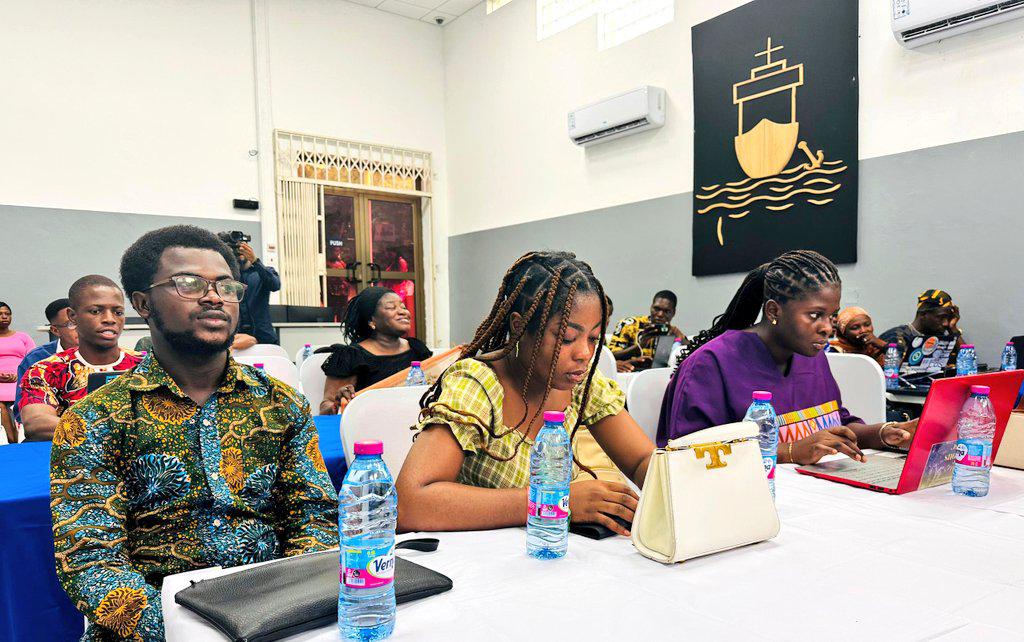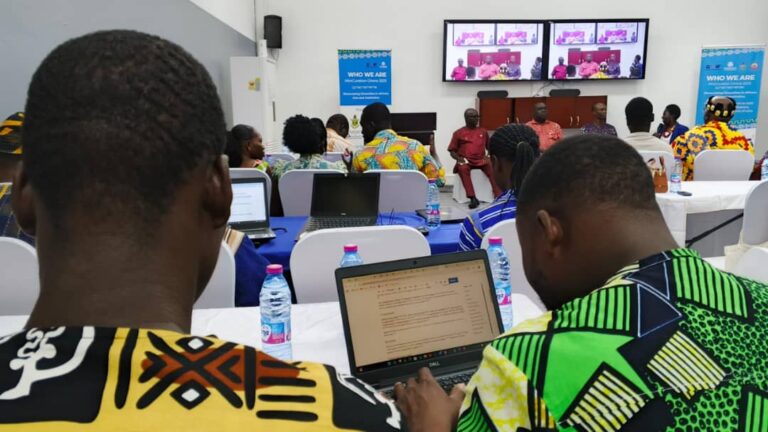Kumasi, Ghana
In a bold move to amplify African identity in the digital space, AfroCuration Ghana 2025 convened over 80 participants at the Kwame Nkrumah University of Science and Technology (KNUST) to create and curate Wikipedia content in seven Ghanaian languages — Twi, Dagbani, Gurene, Moore, Ewe, Kusaal, and Dagaare.
Held under the theme “WHO WE ARE” and sub-theme “Showcasing Diversities in African Arts and Aesthetics”, the event brought together language activists, scholars, and young digital creators to bridge Africa’s digital divide by preserving indigenous knowledge systems through Wikipedia.
Participants were trained to edit and translate articles about African artists, cultural traditions, and heritage using reliable sources and writing in their native tongues. The initiative underscores the power of language in shaping cultural narratives and fostering inclusivity online.
“Every child is a potential multilingual. Why do you deny them from speaking their mother tongue?” asked Professor Opanin Kofi Agyekum of the University of Ghana, who warned against the erosion of indigenous languages and described the act of silencing them as a violation of children’s fundamental rights.
The cultural-tech initiative was spearheaded by the Wikimedians of Twi Language with support from the Global Open Initiative Foundation and funding from the Wikimedia Foundation. Strategic partners included the Department of Language and Communication Sciences at KNUST and the Akan/Nzema Education Department at the University of Education, Winneba (Ajumako Campus).
Among the dignitaries were Nana Krobea Sarfo-Asante, Development Chief of Asuoho Konkomah; Professor Charles Ofosu Marfo, Provost of the College of Humanities and Social Sciences at KNUST; and Dr. Patience Obeng of UEW. Professors and senior lecturers led rigorous quality assurance on all contributions to ensure they met linguistic and academic standards.
Project Lead Jemima Antwi emphasized the urgent need for African visibility online, pointing out that although the continent is home to over 2,000 languages, most remain digitally underrepresented. “Wikipedia is a powerful tool for digital inclusion,” she said. “We are here to change the narrative.”
Harriet Henry Bayel, Executive Director of the Global Open Initiative Foundation, echoed this urgency, calling AfroCuration “a space to take action” against the disappearance of African languages in the digital era.
Founded by the Moleskine Foundation, AfroCuration is a growing movement that fuses art, heritage, language, and digital literacy to empower African youth to document and preserve their cultures in cyberspace.
As Wikipedia becomes a critical repository for global knowledge, AfroCuration Ghana 2025 stands as a vibrant declaration that African languages and cultures have a rightful place on the world’s largest encyclopedia — and in the broader digital future.

